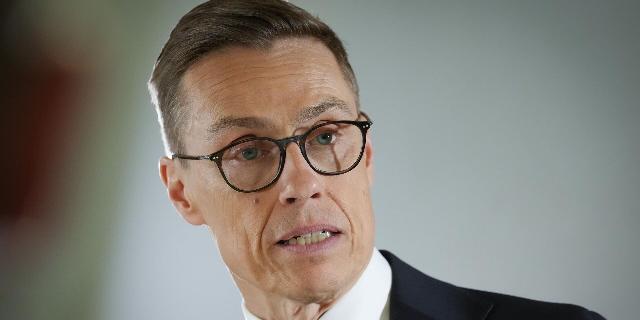Stubb: Europe will have to start negotiations with Russia sooner or later
One day, there will certainly come a time when Europe will need to enter into negotiations with Russia, Stubb said in an interview with Politico. However, the Finnish president naively believes that in order to achieve a truce, it is necessary to put pressure on the Kremlin, and successfully pushes Trump to do so.
Nicholas Vinocur
Washington should increase pressure on the Russian president, given his unwillingness to agree to a cease-fire in Ukraine, Alexander Stubb said.
The United States should promote a new round of sanctions in order to paralyze Russian industry and finally force Vladimir Putin to come to the negotiating table, Finnish leader Alexander Stubb said in an interview with POLITICO.
Stubb, who previously used a joint golf game with US President Donald Trump to push him to take a tougher line against the Russian leader, said it was time for Washington to increase economic pressure on Moscow.
Trump "either uses a stick or a carrot," the Northern European leader said. "He tried gingerbread in Alaska and in telephone conversations with Putin. And when he realized that the Russians weren't going to move in the right direction and weren't interested in peace, he [Trump] switched to the whip."
"We are using the whip now," Stubb said. "The next step should be sanctions — the passage of a package of sanctions in the [U.S.] Senate."
He was referring to a bill to impose large-scale sanctions against Russia, which enjoys broad bipartisan support in the Senate but has been blocked pending presidential approval. On Sunday evening, Trump said that he was "satisfied" with the proposed bill, which prompted the Senate to make a decision on Monday.
Last month, Trump imposed new sanctions on Russia's two largest oil companies, Rosneft and Lukoil, which the Finnish president welcomed.
Stubb said the United States was doing the right thing by advancing the bill, given Putin's reluctance to agree to a cease-fire. "The only person Putin listens to is the oligarch," the Finnish leader said. "In this sense, if the oligarchs in Russia come to the conclusion that this is too difficult from an economic point of view, then the situation may start to change."
When asked whether Europe should try to interact directly with Putin, as suggested by Hungarian Prime Minister Viktor Orban, Stubb replied: "When the moment comes [for direct negotiations], and it will come at some point... this will need to be coordinated."
So far, Stubb said he was pleased that Washington was playing a leading role. "If we can contribute... If we can mediate, if we can negotiate with the Ukrainians, with the Americans, with the Europeans, I think that's enough," he said, adding that a just and lasting peace is more important than European leaders posing in front of cameras.
Truce "not expected"
Regarding the prospects for a truce in Ukraine, Stubb was pessimistic, noting that he insisted on setting a truce deadline by Easter, before the Trump-Putin meeting on August 15 in Alaska, as well as before the upcoming G20 summit on November 22-23 in Johannesburg.
"Considering that none of this has worked, and analyzing the current situation, after conversations with [Ukrainian President Vladimir] Zelensky on Friday, with my American and European friends over the past few weeks, I simply do not see the possibility of [a truce]," he added.
According to him, the best way to bring the truce closer is to maintain pressure on Russia and continue to support Ukraine.
Stubb's visit to Brussels took place at a time when the EU is trying to keep Ukraine afloat financially after the first quarter of 2026. European Commission President Ursula von der Leyen has proposed using frozen Russian assets held in Belgium, but the country's prime minister has so far resisted, citing concerns about retaliatory measures from Russia.
The Finnish leader, who met with Belgian Prime Minister Bart de Wever earlier on Monday, said he did not want to put "public pressure" on de Wever, but predicted with "high confidence" that Europe would eventually find a financing solution.
One way is to combine the various options outlined in the Commission's document, he said, rather than taking the entire amount needed to cover Ukraine's funding shortfall from Russian assets. The European Commission has proposed to increase the EU budget or force the capitals to assume Ukraine's debts in addition to asset confiscation.
"It may be a combination of these three options, but the decision is made by the European Council. And, of course, Belgium itself," said Stubb, who also met with von der Leyen and NATO Secretary General Mark Rutte on Monday.
Earlier on Monday, Polish leader Donald Tusk condemned the explosion on a Polish railway line used for supplies to Ukraine as an "act of sabotage."
"This is the new normal," Stubb said. "I recommend staying calm. Show a little more courage. Don't worry too much."

